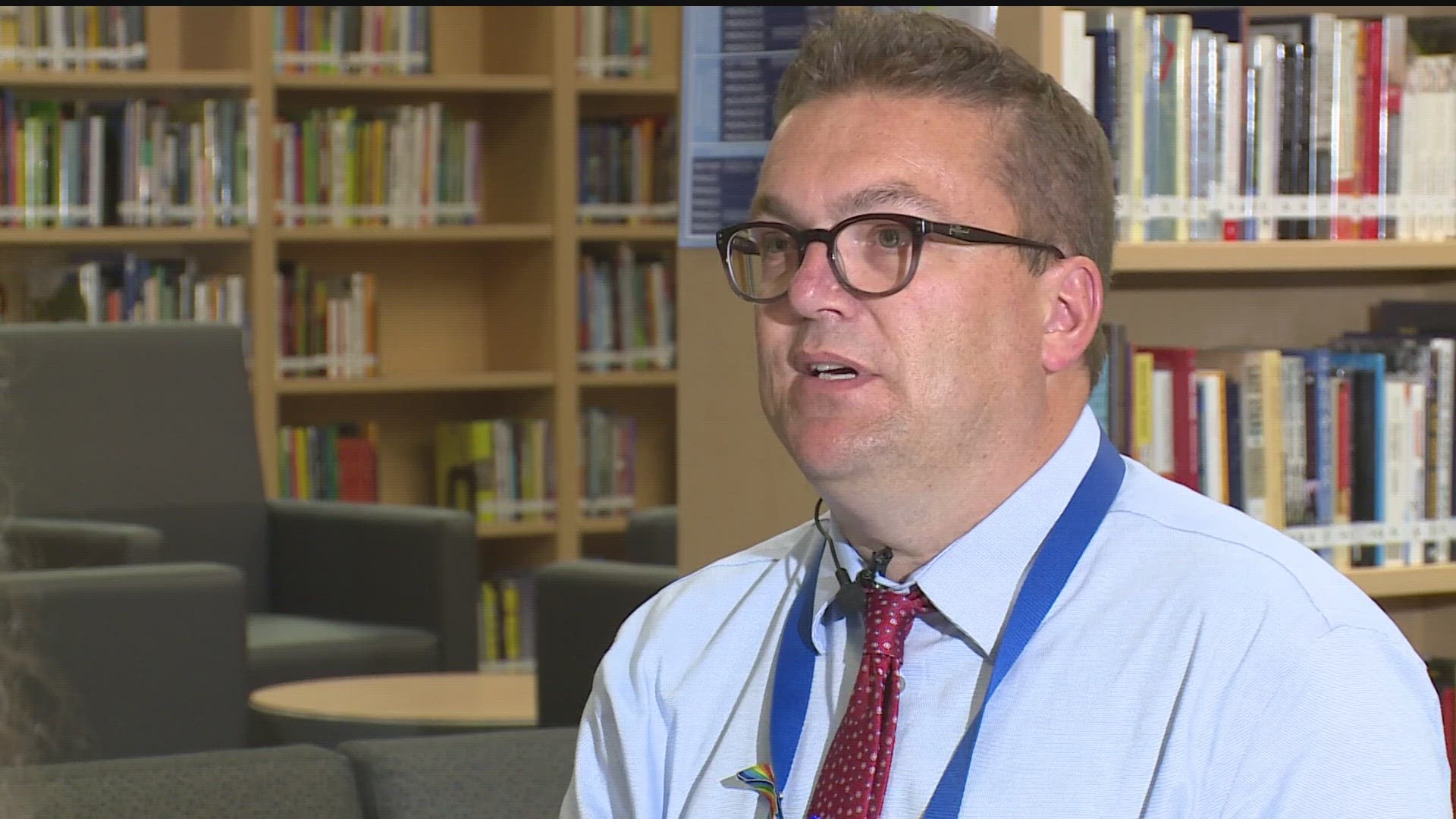ANOKA, Minn. — As students and teachers head back to school, one topic is on a lot of educators’ minds: AI-powered chatbots. The 2023-2024 school year is the first full school year that advanced AI language models — most notably, OpenAI’s ChatGPT — have been on the scene.
ChatGPT launched in late November of 2022 and quickly sent educators into a frenzy. The essay-writing, question-answering chatbot, presents some obvious challenges for teachers and administrators. New York City Public Schools banned the use of the software in January and then reversed the ban in May.
Minnesota’s largest school district, Anoka-Hennepin, is proceeding with caution and curiosity.
“We had meetings about it right away, and we just started playing,” said Justin Wewers, instructional technology facilitator at Anoka-Hennepin. “We didn’t get people coming after us with pitchforks, saying ‘Hey, we want to ban this.’ There were questions [like], ‘How do we use this? How do we work with kids?’”
Wewers, whose duties include supporting the district-wide gradebook and other tech and hardware, said he held brainstorming meetings with teachers to discuss those questions in the days leading up to the new school year.
“We’ve put some ideas out there, but really it’s so new that we don’t really have a ‘You have to do this, you should do this,'” he said. “We’re really open to ideas.”
Daryl Boeckers, who serves Anoka-Hennepin as a learning technologies coach at Blaine High School, says one idea is for teachers to employ “multimodal” assessments by finding different ways for students to demonstrate their knowledge. Even better, he says, if those assessments incorporate ChatGPT.
“What if we have writing checkpoints that are done by hand first, so that you have just a handwritten paragraph about where you're going to start,” Boeckers said. “And maybe we look at ChatGPT to do some brainstorming with us.”
Boeckers encourages teachers to deviate from traditional assessments like multiple choice exams or five-paragraph essays (for which ChatGPT may be easily used) and instead, try something creative.
“Like students hosting a podcast, which social studies is already doing,” Boeckers said.
He also mentioned one district teacher using AI-generated images to help students memorize lyrics to songs in choir class.
“There are so many ways to leverage this in positive ways,” he said.
When it comes to concerns about student honesty, the district is prepared to address that, too.
“I suspect that they have already [cheated] with ChatGPT. And I suspect that they will continue,” Boeckers said. He added that cheating with the use of technology is nothing new.
“That happened in the 2010s when I was teaching Spanish. And just a quick, discreet conversation with a kiddo to say, ‘I notice that you’re using advanced structures that I haven’t taught you yet. Tell me more about what that means.’”
Wewers, too, says it’s an opportunity to start a conversation.
“Maybe it turns into a discussion with that kiddo, like, 'Hey, this sounds a little AI-ish, let's talk about that,” he said.
While the district doesn’t have a concrete stance on ChatGPT, such as an ethical use statement, Wewers says the school’s academic honesty policy still applies. The statement below was provided by Anoka-Hennepin communications specialist Dax Larson on academic honesty.
"Students are expected to produce work that represents their own effort and mastery toward learning targets. In accordance with these values, students are expected to adhere to standards of academic integrity. Academic integrity violations may result in disciplinary action."
As district-wide discussions are taking place, it’s still up to each teacher as to just how much they want to incorporate ChatGPT into their classroom. Ultimately, Boeckers and Wewers say they want to prepare students for whatever they pursue after their K-12 education. And while much is still unclear, one thing appears to be certain: this type of technology is only beginning to ramp up.
“What's normal in 2023? Including teaching and learning?” Boeckers said. “We have to continue to adapt.”
Watch more local news:
Watch the latest local news from the Twin Cities and across Minnesota in our YouTube playlist:

